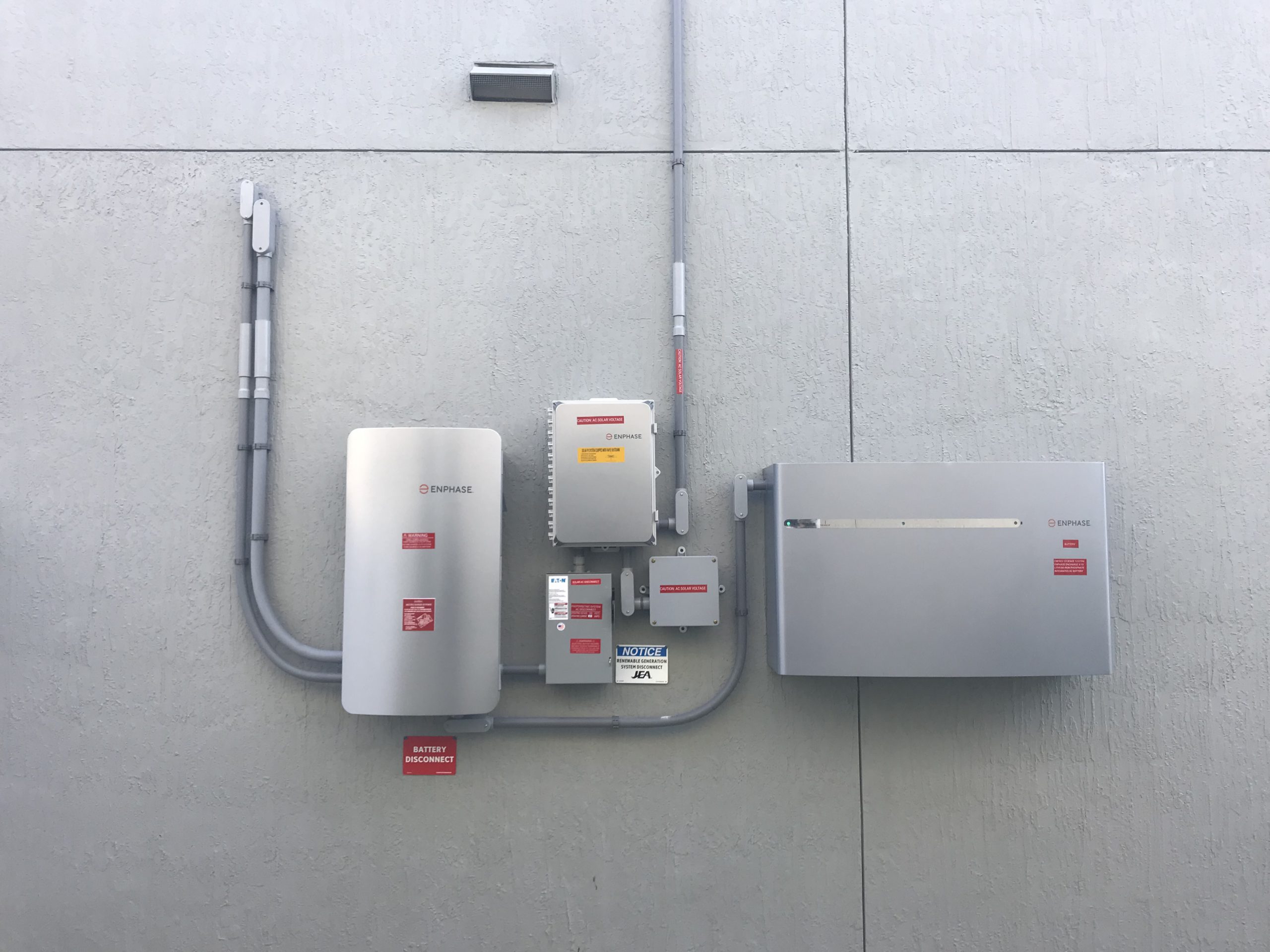
How Long Can Your Solar Battery Power Your Home During an Outage?
Momentum Solar
Having a battery storage system installed with your solar panels is a great way to achieve true energy independence for your home. Whether you are using stored energy to power your home on a cloudy day, during an outage or to offset peak usage times with your utility, a battery storage system from Enphase + Momentum has your back.
Knowing how long your battery storage system can power your home during an outage is an essential step for homeowners just like you in being prepared for a storm. In addition to a battery storage system, an Uninterruptible Power Supply (UPS) system can offer an extra layer of protection for your home, ensuring that critical devices stay powered even when the grid goes down. A UPS works by providing instant backup power to keep your essential appliances, like refrigerators, medical equipment, or home office devices, running seamlessly during an outage.
When paired with a solar system, a UPS can help you maintain power in the event of a storm or blackout, offering peace of mind when you need it most. Companies like jinnuoglobal specialize in UPS systems that can integrate with your solar panel setup, making it easier to ensure that your home is fully prepared for any unexpected interruptions in power. This combination of battery storage and a UPS can provide a reliable, sustainable solution to energy independence and security for your home.
In this blog, our team will give you some tips and tricks to help you calculate your energy needs and how to maximize your battery usage. For more information on battery storage and Momentum Solar’s offerings, please call 1-888-MOMENTUM to learn batmore.
Power What’s Important
During an outage, you should always be conservative with your electricity usage. Even with a fully charged battery powering your home, you should maximize its usage by only using essential appliances.
Below is a list of critical items and their electricity needs per day:[1]
- Refrigerator = 1.5 kWh
- Kitchen Appliances = 1 kWh (this includes an electric microwave, electric oven, coffee machine, dishwasher and a toaster).
- Electric Water Heater = 2.5 kWh
- Lights (LED) = 1 kWh
- TV and Device Chargers = 2 kWh
Even though heating and air conditioning may not seem like an “extra”, it is one of the last items on the list due to the sheer amount of energy these systems require to stay powered. To be clear, the specific system you use to keep warm or cool will affect how many kilowatts it takes to keep its power on. Understanding the efficiency of your specific system is crucial, as it directly impacts energy costs and overall performance.
Regular maintenance, including timely furnace repair, is vital to ensure that heating systems operate at peak efficiency, minimizing energy waste. By investing in proper upkeep and addressing any issues promptly, homeowners can optimize their heating and cooling systems, leading to substantial savings on energy bills while ensuring a consistent and pleasant indoor climate throughout the year.
This proactive approach not only enhances comfort but also extends the lifespan of these critical systems, making them a worthwhile priority in any home management plan. That being said, here is a quick, rough guide to air conditioning and heating usage!
Heating
- Electric Furnace = 10.5 kWh per hour
- Portable Heater = 1.5 kWh per hour
- Baseboard Heater = 1.5 kWh per hour
Cooling
- Window / Wall AC (8k to 18k BTU) = 0.73 – 1.8 kWh per hour
- Standing Fan = 3.0 kWh per hour
- Ceiling Fan = 0.025 – 0.075 kWh per hour
- Central AC (3 ton – 12 SEER) = 3.0 kWh per hour
Please keep in mind that knowing when and when not to use heat or cooling is essential to maximizing your battery life.
How Long Will Your Battery Last?
Without using AC or electric heat, homeowners can typically keep their essential systems powered with a 10-kWh battery for at roughly 24 hours. In a recent study done by the Lawrence Berkeley National Laboratory, “(A) small PVESS with just 10 kWh of storage (at the lower end of sizes currently observed in the market) can fully meet backup needs over a 3-day outage in virtually all U.S. counties and any month of the year.”[2]
This means you can run your refrigerator, lights, TV and device chargers for at least three days before experiencing a true power outage. The more conservative you are with your power usage, the longer your battery will last.
Solar Power and Battery Power at Momentum
The great thing about having solar power and battery storage at home is that you essentially are your own utility provider. You generate the power with your panels, store the excess in your battery and choose to use the extra energy when needed.
Whether you need solar, a battery storage system or both, our team has you covered. Our team offers flexible financing options to fit your needs, and we can provide two different battery modules from Enphase.
Both Enphase Encharge modules are interchangeable and scalable, allowing you to create the perfect battery storage system for your needs. To learn more about our battery storage options, check out our blog, Battery Storage and Your Home!
For more information, please call us at 1-888-MOMENTUM or visit our website at www.momentumsolar.com.
[1] https://www.solar.com/learn/how-long-can-a-battery-provide-power-during-an-outage/
[2] https://eta-publications.lbl.gov/sites/default/files/pvess_report_narrative_summary.pdf
Perfect closing





